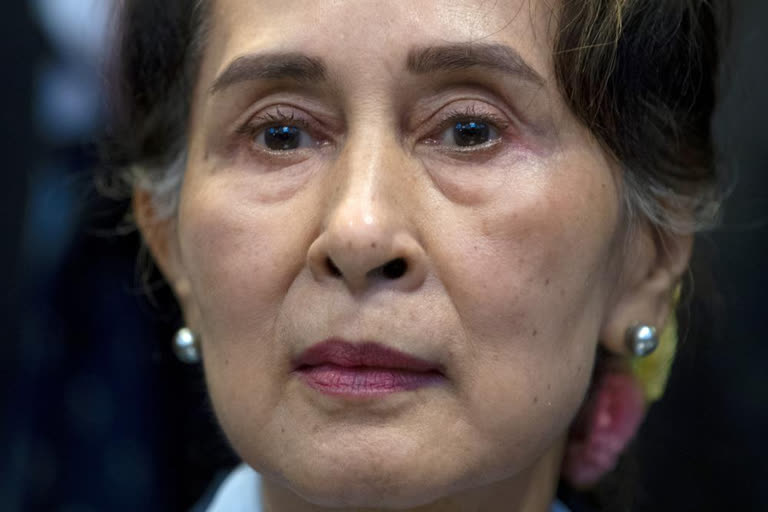Bangkok: A special court in Myanmar’s capital sentenced the country’s ousted leader, Aung San Suu Kyi, to four years in prison on Monday after finding her guilty of incitement and violating coronavirus restrictions, a legal official said.
The sentencing was the first in a series of cases in which the 76-year-old Nobel laureate is being prosecuted since the army seized power on Feb. 1, preventing her National League for Democracy party from starting a second five-year term in office. The verdict in another case against her is expected next week.
If found guilty in all the cases she faces, she could be sentenced to more than 100 years in prison. The court on Monday did not make clear whether Suu Kyi would be sent to prison for the two convictions or placed under house arrest, the legal official said. In her long struggle for democracy, she has served 15 years of house arrest starting in 1989.
The incitement case involved statements posted on her party’s Facebook page after she and other party leaders had already been detained by the military, while the coronavirus charge involved a campaign appearance ahead of elections in November last year which her party overwhelmingly won.
The army, whose allied party lost many seats in the election, claimed massive voting fraud, but independent election observers did not detect any major irregularities.
The ruling by the court in Naypyitaw was conveyed by a legal official who insisted on anonymity for fear of being punished by the authorities. Suu Kyi’s trials are closed to the media and spectators, and her lawyers, who had been the sole source of information on the proceedings, were served with gag orders in October forbidding them from releasing information.
Government officials could not immediately be reached for more details about the ruling. Special courts are a legacy of British colonial rule, appointed to hear specific cases. They are most often used for political cases.
Defense lawyers are expected to file appeals in the coming days for Suu Kyi and two colleagues who were also convicted Monday, the legal official said.
The cases against Suu Kyi are widely seen as contrived to discredit her and keep her from running in the next election. The constitution bars anyone sent to prison after being convicted of a crime from holding high office or becoming a lawmaker.
Opposition to military rule remains strong 10 months after the army’s takeover, and the verdict may inflame tensions even further.
There were protest marches on Sunday against the military government and calling for the release of Suu Kyi and other detained members of her government. An army truck deliberately sped into a march by about 30 young people in Yangon, the country’s biggest city, and at least three of the protesters may have been killed, according to unconfirmed reports.
The verdicts in Suu Kyi’s first two cases, on incitement — for allegedly spreading false or inflammatory information that could disturb public order — and violating the Natural Disaster Management Law for allegedly breaching coronavirus restrictions, were supposed to be delivered last Tuesday. However, the court postponed its ruling with no explanation. At the same time, it agreed to allow testimony this week on a separate coronavirus charge from an additional defense witness who had previously been unable to attend court because of ill health.
